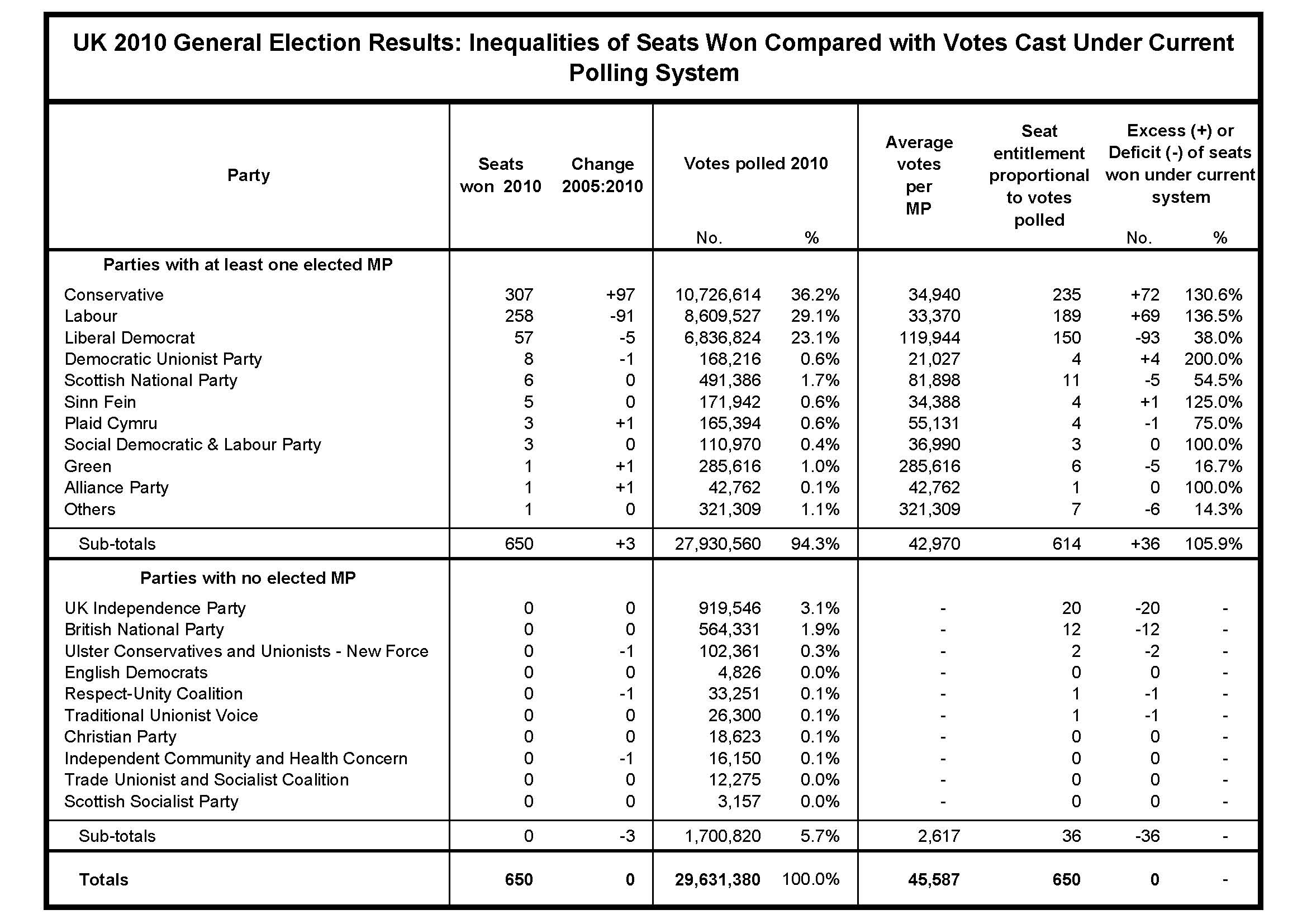- Home
- ProFirst votes in The House
- Current system vs ProFirst
- Benefits
- Disbenefits
- Proxy votes
- Independent MPs
- Supernumerary MPs
- By-elections
- Absent MPs
- Party Whips
- The AV simulation exercise
- The current voting system
- The ProFirst voting system
- AV vs ProFirst comparison
- ProFirst voting power by seat
- ProFirst voting power per MP
- UK FPTP/AV/Profirst results
Tables:

Why the present system is disproportionate
This shows that MPs under the current system carry a voting power which is largely unrelated to the proportion of votes either they themselves or their party received at the election.
Even the smaller parties and Independents who won some seats mostly lost out, and those who did not gain any seats at all had polled in total enough votes to justify an extra 36 seats.
- The Conservative Party gained 72 more seats in the house than would have been justified by the proportion of the national vote they received.
- Labour benefited almost as much: they won 69 more seats than would have been justified.
- The Liberal Democrats, however, received a total of 93 fewer seats than their overall poll would have given them on a proportional basis, while
- The Scottish National Party and Plaid Cymru were also significantly under-represented.
But under the new ProFirst system it will become much fairer. While constituency MPs will still gain their seat under the First-Past-The-Post system with its simple and easily-understood ballot forms, the voting power of those MPs in the House will accurately reflect the electorate's real preferences, and it will be possible to see exactly how your vote is being used by the candidate or party you voted for.